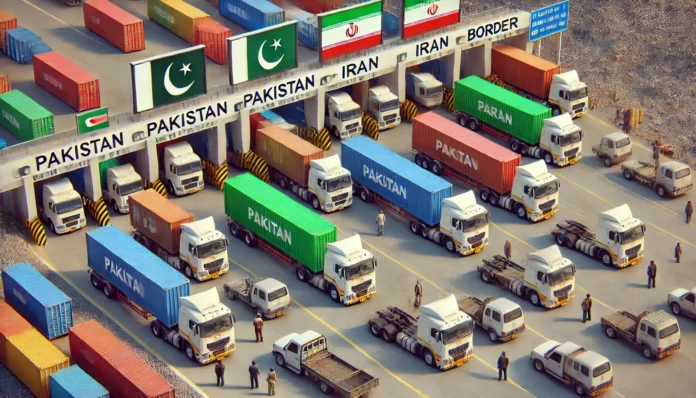ISLAMABAD: The Senate Standing Committee on Commerce has urged the Ministry of Commerce (MoC) to address the lingering issues and confusion surrounding Pakistan’s barter trade policy with Iran, Afghanistan, and Russia, warning that unclear frameworks risk undermining trade potential.
Chaired by Senator Anusha Rehman, the high-level committee meeting focused on mechanisms to achieve the government’s export targets, with a particular emphasis on the evolving barter trade arrangements with neighboring countries.
The committee directed the Ministry of Commerce to expedite the approval of pending summaries for barter trade and amendments to the Import Policy Order. Members expressed concern over policy ambiguity, especially regarding trade with Iran, Russia, and Afghanistan under a barter system following banking restrictions with these countries.
Senator Hamid Khan criticised the existence of separate policies for barter and traditional trade, calling it “malicious,” and asserting that “global trade operates under a unified Import Policy Order (IPO).” Meanwhile, Senator Saleem Mandviwalla highlighted the strategic importance of barter trade in curbing cross-border smuggling, stating: “Barter trade with Iran and Afghanistan will help prevent smuggling.”
Traders impacted by the delays informed the committee that over 1,200 trucks loaded with goods under barter agreements, particularly sesame seeds and rice—have been stranded at the border due to procedural hurdles, with transactions conducted outside the dollar-based payment system. In response, the committee agreed to convene a joint meeting with the finance minister, commerce minister, and the State Bank of Pakistan (SBP) governor to resolve the impasse.
Documents shared with the committee revealed that the Ministry of Commerce has finalized a draft summary proposing an exemption from Electronic Import Forms (EIF) for imports of Iranian-origin goods via land routes. The exemption, aimed at facilitating trade in the absence of formal banking channels, has been circulated among the Federal Board of Revenue (FBR), SBP, and Finance Division for feedback before submission to the Economic Coordination Committee (ECC) of the Cabinet.
According to the draft, the exemption from paragraph 3 of the Import Policy Order 2022 and EIF requirements under the SBP’s Foreign Exchange Manual would apply solely to Iranian-origin goods imported by land, until banking channels are formally established. The exemption does not extend to non-Iranian-origin goods imported via Iran, due to the availability of regular banking arrangements with other countries.
The FBR will oversee verification of the goods’ origin under Section 79 of the Customs Act, 1969, and Rule 433-A of the Customs Rules, 2001. The current EIF exemption for Iranian imports is set to expire on May 15, 2025. Meanwhile, the Ministry of Commerce is reviewing the existing barter trade framework and SROs in consultation with stakeholders to operationalize the system.
Key decisions from recent meetings include aligning barter trade rules with the Import and Export Policy Orders 2022, eliminating the predefined list of tradable goods in SRO 642(I)/2023, and awaiting inputs from the Ministry of Foreign Affairs on sanctioned entities. The FBR is also expected to propose amendments enabling credit transfers or netting of trade values under the barter system.
The SBP, while acknowledging the necessity of EIF waivers given the absence of banking ties with Iran and Afghanistan, cautioned against potential misuse and recommended stronger controls in the WeBOC and Pakistan Single Window (PSW) systems to ensure only genuine traders benefit. The central bank further advised prioritizing operationalization of the barter trade mechanism over continued reliance on EIF exemptions, which risk encouraging informal settlements.
Additionally, the Ministry of Commerce has proposed mandatory certificates of origin for all goods imported from Iran and Afghanistan to ensure compliance with customs regulations and to prevent circumvention of import restrictions, particularly for high-risk goods.
The committee also addressed the issue of illegal trade, including smuggling of tobacco, pharmaceuticals, and tires. A subcommittee comprising Senators Zeeshan Khanzada, Sarmad Ali, and Faisal Rahman was formed to present recommendations on the tobacco sector. The issue of counterfeit medicines was referred to the Senate Standing Committee on Health for further review.
In a bid to modernize trade practices, the committee urged the Ministry of Commerce and trade associations, including towel manufacturers and the pharmaceutical industry, to adopt a digitized system introduced by private firm Galaxefi Solutions. On the committee’s invitation, Galaxefi founder and CEO Asif Pervez delivered a detailed presentation on how the firm’s automation and AI solutions could transform cross-border trade operations.
Trade and Investment Officers (TIOs) of Ministry of Commerce posted abroad also briefed the committee on emerging global trade opportunities, signaling Pakistan’s continued commitment to expanding its international trade footprint.
The meeting was attended by Senators Sarmad Ali, Faisal Saleem Rehman, Bilal Ahmed Khan, Hamid Khan, Amir Waliuddin Chishti, Saleem Mandviwalla, Zeeshan Khanzada, and Muhammad Tallal Badar, alongside senior officials from the Ministry of Commerce, private sector representatives, and international trade officers.




